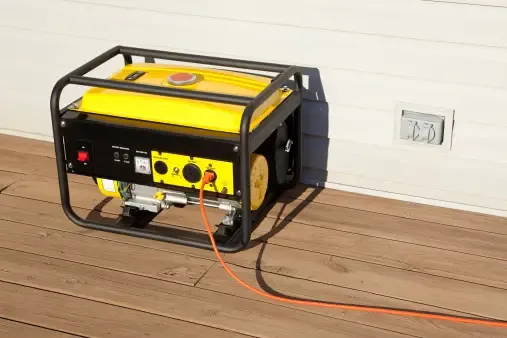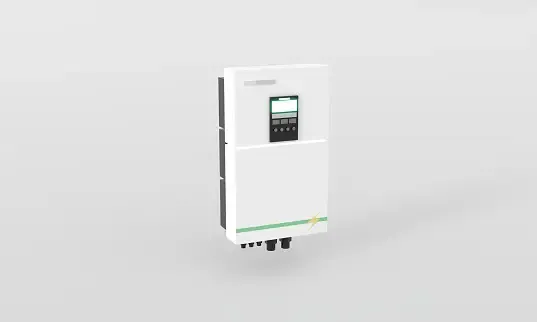
What is the Difference between a Generator and an Inverter?
When it comes to providing backup power or ensuring a continuous supply of electricity, many people find themselves confused between generators and inverters. Both devices serve the purpose of supplying electricity, but they operate in different ways and are suitable for various needs. In this blog post, we will explore the differences between a generator and an inverter, helping you understand which might be the better choice for your specific requirements.
Understanding Generators
A generator is a device that converts mechanical energy into electrical energy. It typically runs on fuels such as gasoline, diesel, or propane. Generators are commonly used during power outages or in areas where grid power is unavailable. They come in various sizes, from small portable units to large industrial machines.
The main components of a generator include an engine, an alternator, a fuel system, a voltage regulator, and a cooling and exhaust system. When the generator is turned on, the engine starts to run, converting fuel into mechanical energy. This mechanical energy is then converted into electrical energy by the alternator.
Generators can provide a significant amount of power, making them ideal for powering multiple appliances and even entire homes during a blackout. However, they can be noisy, require regular maintenance, and produce exhaust fumes, making them less suitable for indoor use.
Understanding Inverters
An inverter, on the other hand, is a device that converts direct current (DC) into alternating current (AC). Unlike generators, inverters do not produce electricity; instead, they convert stored power from a battery or a solar panel into usable AC power. Inverters are often used in renewable energy systems, such as solar power setups, and as backup power sources for smaller loads.
The key components of an inverter include a battery, a charger, and the inverter unit itself. The battery stores the DC power, which is then converted into AC power by the inverter when needed. Inverters are known for their efficiency, quiet operation, and ability to provide clean, stable power.
While inverters are excellent for smaller loads and sensitive electronic devices, they may not be suitable for powering large appliances or an entire home during a power outage. The power output of an inverter is typically lower than that of a generator, and the battery capacity limits the duration of power supply.
Key Differences Between Generators and Inverters
Power Source and Generation:
Generators produce electricity from mechanical energy using fuels, while inverters convert stored DC power into AC power without generating electricity themselves.
Power Output:
Generators can provide higher power output suitable for large appliances and entire homes, whereas inverters are more suitable for smaller loads and sensitive electronics.
Noise and Emissions:
Generators are generally noisier and produce exhaust fumes, making them less suitable for indoor use. Inverters operate quietly and do not produce emissions, making them ideal for indoor use and environments where noise is a concern.
Maintenance and Fuel:
Generators require regular maintenance and a steady supply of fuel, which can be cumbersome and costly. Inverters require less maintenance and rely on batteries or renewable energy sources like solar power.
Portability and Usage:
Portable generators can be moved around easily for outdoor activities like camping or job sites. Inverters are typically stationary or part of a larger renewable energy system, and their portability is limited by the battery size.
| Feature | Generator | Inverter |
|---|---|---|
| Power Source | Fuel (gas, diesel, propane) | Battery or solar |
| Noise Level | Loud | Very quiet |
| Portability | Generally heavier | Lighter and compact |
| Power Quality | Fluctuates, not ideal for electronics | Stable and safe for electronics |
| Run Time | As long as fuel is available | Limited by battery size |
| Maintenance | Needs oil, filter, engine care | Minimal maintenance |
| Environmental Impact | Emits fumes | Eco-friendly, no emissions |
| Cost (initial) | Usually cheaper | Higher upfront cost |
| Cost (long-term) | Higher (fuel & maintenance) | Lower (no fuel) |
Which One Should You Choose?
The choice between a generator and an inverter depends on your specific needs and circumstances. If you need a reliable power source for large appliances or your entire home during a prolonged power outage, a generator is likely the better choice. Generators can provide the high power output needed to keep everything running smoothly.
On the other hand, if you need a backup power source for smaller loads or sensitive electronics, or if you prioritize quiet operation and clean energy, an inverter may be the ideal solution. Inverters are perfect for home renewable energy systems and can ensure a stable power supply without the noise and emissions associated with generators.
Conclusion
In summary, understanding the difference between a generator and an inverter is crucial for making an informed decision about your power needs. Generators and inverters serve different purposes and come with their own sets of advantages and disadvantages. By considering factors such as power output, noise, emissions, maintenance, and portability, you can choose the device that best meets your requirements.
Related article: What is the function of an inverter?


